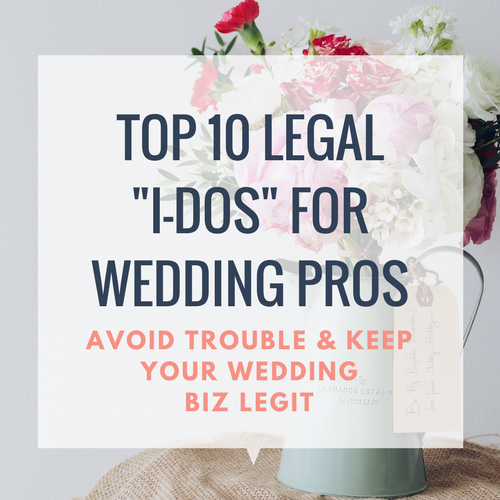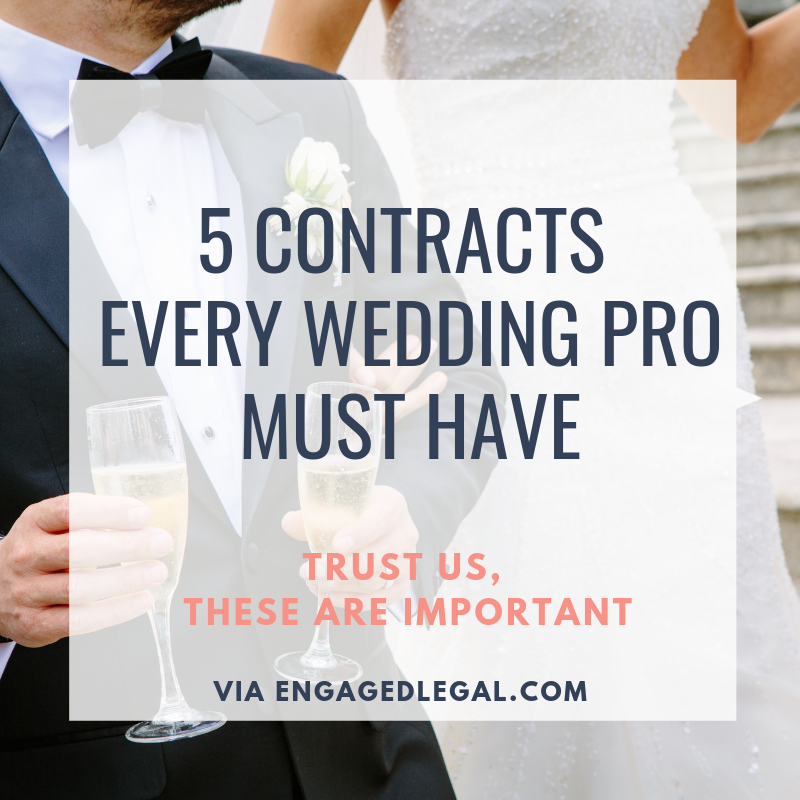Does Your Email List Break the Law?
/"Each separate email in violation of the CAN-SPAM Act is subject to penalties of up to $40,654"-- FTC.gov ⬅️
Do I have your attention now?
Yeah, thought so. If you're sending out emails to customer lists, sharing potential customer lists of new couples with like-minded vendors, growing your email list through freebies, or just starting to explore the idea of email marketing, you need to perk your ears up. Because there's laws out there that affect you BIG TIME.
Wait, WHAT?
I'm talking about the laws surrounding emails, also known as CAN-SPAM laws.
In most industries, especially the creative industry, email marketing is one of the most widely utilized forms of customer engagement-- "building your list" is a chant I hear consistently. Email's low-cost coupled with high-reach makes email blasts an attractive option for ANY business. However, many small businesses are unaware of regulations surrounding those handy dandy Email blasts, which can incur some STEEP fines.
Don't believe me? Check out Melyssa Griffin's warning in her Mailchimp tutorial. Or maybe take it directly from the FTC.(Spoiler Alert: Melyssa's is a better read).
The dirt: Remember in the early 2000s when you'd just get straight up porn in your inbox? To deal with a huge influx of junk email and inappropriate SPAM rocketed off to early internet-users, the “Controlling the Assault of Non-Solicited Pornography And Marketing Act of 2003” (whew, say that 10x fast) was passed by lawmakers in December of 2003. The act aimed to reduce the number of frivolous, inappropriate, or downright dangerous messages email users received.
CAN-SPAM applies to commercial email, but defines "commercial" broadly. Commercial email is “any electronic mail message the primary purpose of which is the commercial advertisement or promotion of a commercial product or service (including content on an Internet website operated for a commercial purpose).” This includes everything from email blasts to coupons to newsletters, and also emails asking users to “forward” or “invite friends.”
Thinking about that last blast you sent out to your email list makes you a little nervous, right?
Don't freak out. Major mail services provide built-in CAN-SPAM compliance (hey MailChimp!) To those not using MailChimp should consider the following rules:
- A consumer must consent to opt IN. This means your business can’t automatically add emails from everyone who interacts with their website (example: by downloading a freebie or purchasing a product!). The box needs to be clearly labeled and a consumer must check the “opt-in” box themselves. This is where double-layer opt-in can be helpful!
- Opt-Out required. You must make sure there is a clear “opt out” option in every email blast. Once requested, businesses have about 30 business days to remove from their email lists before they can be fined.
- Show me some ID! The sender of the email must be clearly identified. The origin of the email and the address through which the email was sent cannot be incorrect or misleading.
- Disclose it! You must explicitly disclose that the email is promotional in nature. There are many creative ways to accomplish this, but all need to be clear and conspicuous. No hiding it in the footer in light gray font!
- Brick and mortar required. Yep, that's a thing. Businesses must include a physical address in the email.
- Don’t misrepresent the actual content of the email. You or your marketing team can write a kitschy tagline, but make sure the tagline relates to the email. Nothing that's going to mislead the consumer (or give them a heart attack).
Here's a kicker: both the company whose services are promoted in the message AND the company that actually sends the message (the marketing company, etc.) may be held legally responsible. This means your company's PR and marketing companies must comply with these rules-- and you need to keep on top of their work to make sure you're not held responsible!
For more information on how your business can comply, the FTC provides great CAN-SPAM Compliance resources.
Note: This post is meant for educational purposes only, and not meant to substitute for the counsel of a licensed attorney. Please contact an attorney in your locality, or contact my firm separately to engage us for federal matters (e.g. Trademark, copyright, CAN-SPAM, or federal employment regulations). Caroline is a lawyer, but she's not your lawyer. This post may contain affiliate links.



















